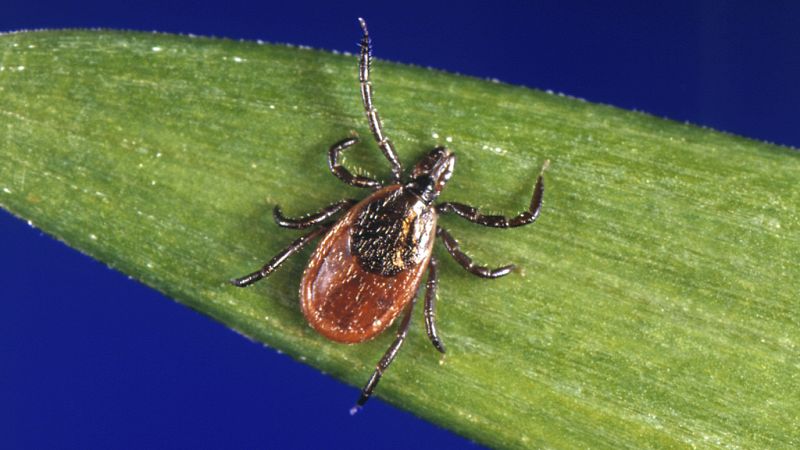
Health authorities in Greece are raising the alarm after a 72-year-old livestock farmer died of Crimean-Congo haemorrhagic fever.
The man was infected by a tick and hospitalised in Larissa, where he transmitted the disease to his doctor, who now appears to be in good health.
In all, 25 people have been quarantined because they were either close contacts or nursing staff who came in touch with the man who died. None have fallen ill, but 10 people belong to high-risk groups.
Crimean-Congo haemorrhagic fever is a viral illness that spreads through tick bites. It is rare in Europe, but sometimes appears in the Balkan and Mediterranean countries.
Greece last reported a case in 2018.
More than 80 per cent of cases have no or mild symptoms, but among severe cases that require hospitalisation, about 30 per cent of patients will die from the disease, according to the European Centre for Disease Prevention and Control (ECDC).
Symptoms can include fever, muscle and stomach pain, and dizziness, as well as nosebleeds and organ failure, the ECDC said.
Since the man's infection was identified, Greece's public health officials have taken samples from humans and 15 ticks to conduct laboratory testing, with results expected in the next few days. They are also fumigating the area to reduce risks to people.
The authorities have advised health workers to be vigilant about suspicious illnesses and are taking steps to inform high-risk groups about prevention measures, such as avoiding woods and meadows where ticks may be present, wearing light-coloured clothing to make it easier to spot ticks, and using insect repellant.
To prevent person-to-person spread, public health authorities recommend that people avoid close physical contact with someone who may have hemorrhagic fever, wear gloves and protective equipment when caring for patients, and wash their hands regularly.







